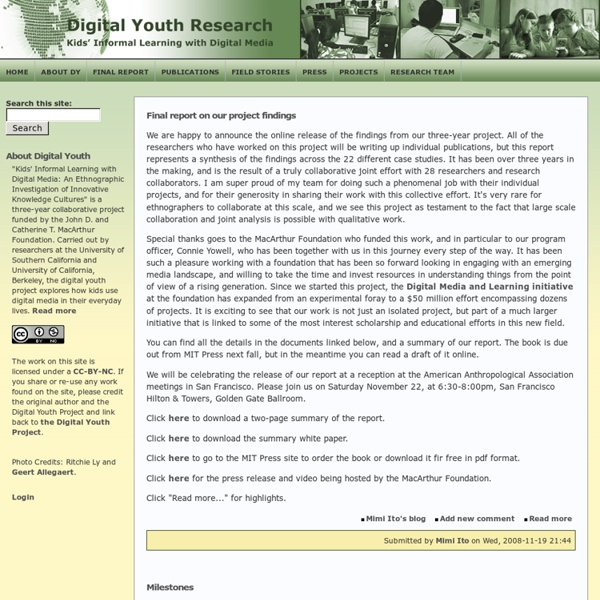



Westminster cop loses job in high school sexting case By Kirk Mitchell The Denver Post Posted: 04/07/2012 08:18:05 PM MDT|Updated: 2 years ago A Westminster police officer apparently was fired following a sexting investigation in which three Standley Lake High School students face possible felony charges. Police have presented evidence to District Attorney Scott Storey for possible felony charges of child pornography against two teenage students, according to police spokesman Trevor Materasso. A girl who attends the school also was involved in the incident and could face charges as well. "It's related to a sexual offense that would require someone to register as a sex offender," Materasso said. The Police Department opened a sexting investigation involving the three students on March 20. Six days later, the department opened a personnel investigation involving a detective assigned to the investigative unit, Materasso said. He said the officer, whose identity was not released, stopped working for the department on April 4.
Buzzcut Infographic: 5 Ways You Can Lose a Job on Facebook If you thought you could "be yourself" on Facebook, as opposed to the more free-for-all Twitter or LinkedIn, you may want to reconsider. If you thought you could "be yourself" on Facebook, as opposed to the public free-for-all of Twitter or the buttoned-down professional circles of LinkedIn, you may want to reconsider. This June, the Federal Trade Commission approved the creation of a "Social Intelligence Report" that lets private companies archive your social media activities for up to seven years, for "compliance" reasons. A human resources manager can hire consultants, like those at the Social Intelligence Corporation, to compile a report of what you've posted across all your social networks (kind of like how a landlord checks your credit score). All this is confirmed in the infographic below, created by MindFlash and based on a 2009 survey from CareerBuilder. Credit: MindFlash (click to enlarge)
it - Solve puzzles for science Facebook Nation States How to tune in to your wired teen (CNN) -- Meet the "digital natives." They are the teens and tweens who flock to MySpace, Facebook and other social networking sites. Facebook attracted 30.6 million U.S. visitors during September. With ages barely into the double digits, these "digital natives" are growing up with the Internet. Actual public spaces -- the parks and playgrounds their parents enjoyed as children -- are being replaced by the virtual spaces of Massive Multiplayer Online Role-Playing Games, social networking Web sites, instant messenger platforms and video-music swapping sites. Sure, the "digital native" is a stereotype, but it's one that might sound familiar to many parents and educators puzzled by the social habits of this young and wired generation. According to Anastasia Goodstein, author of "Totally Wired: What Teens and Tweens are Really Doing Online" and blogger for Ypulse.com, theirs is a virtual space wherein they play games, experiment with self-expression, and socialize with friends. Don't Miss
seriousgame.org Social-Networking Sites Draw Teens In In the largely unsupervised digital world, youths set the rules. They haven't abandoned our shopping malls, coffeehouses, fast food joints, or convenience store parking lots, but increasingly, high school students are hanging out online as well as off, using social networks to congregate and stay connected with friends. Web sites such as Facebook and MySpace provide parallel universes in which the typical teenager now spends about an hour a day. Indeed, social networks -- which support messaging, live chat, file sharing, and more -- have become so pervasive, says Kali Trzesniewski, an assistant professor of psychology at the University of Western Ontario, in London, Ontario, that it would be hard to find teens who aren't using at least one of these sites. What's going on here? Plenty. In other words, they're doing what teenagers have always done, only in a virtual venue that's open 24/7. Being Part of the Crowd Ian Boyd was even more skeptical, but he ultimately joined the club, too.
ESA How to Talk About Life Online Tips for teachers to help students be safe on the Internet. This how-to article accompanies the feature "Social-Networking Sites Draw Teens In." Diane Crockett, a teacher at the Brevig Mission School, in Brevig Mission, Alaska, population 278, decided to tackle social networking as a class topic after she saw some of the MySpace pages created by her 12-year-old daughter's friends. She noticed background graphics showing marijuana leaves, public comments that revealed highly personal information, and photographs of kids in sexy poses. To encourage more critical thinking about life online, Crockett developed a multipart digital project about identity, which helped her win a statewide technology award. The project integrated a variety of Web 2.0 tools and addressed academic standards, particularly writing. Crockett says teachers can use in-class discussions about social networking to get students talking about the following topics: Privacy: How much information should friends reveal online?